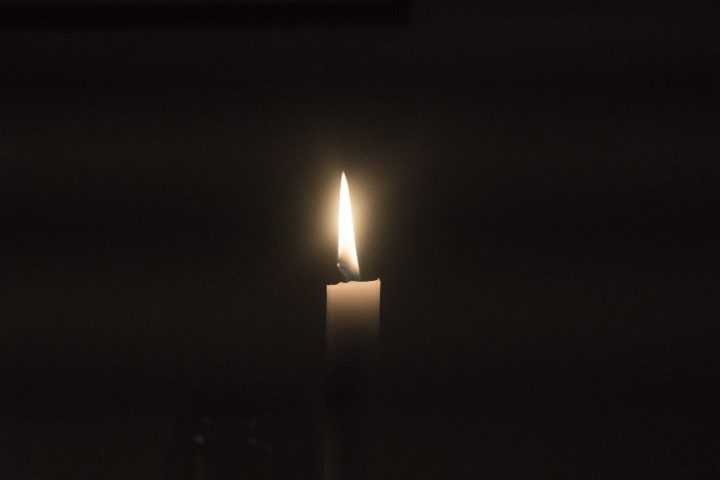I’ve heard Lent described as “the period of bright sadness.” In my Christian experience, Lent has sometimes been presented as a time of fasting that is strict, religious, and ultimately unnecessary for Christians. The reasoning behind this is that Jesus has fulfilled the law for our salvation, so legalistic periods of fasting and prayer aren’t really necessary.
In short, Lent is nice but kinda pointless.
I had internalized this belief because the hope and reality of Easter is meant to be such a day-to-day experience for Christians that we don’t need to put so much emphasis on preparing for Easter. Personally, in my formative years I would not have called Lent a period of “bright sadness,” but an oppressive tradition.
While it’s true that Lent is not required of us for righteousness, and that the hope of Christ crucified and raised again is an everyday beautiful reality that we don’t need to wait for, I now believe that the tradition also holds great value. In fact, in recent years it has been wonderfully formative for me.
I now appreciate that the Christian calendar can provide structure and rhythms in different seasons to draw out, emphasize, or allow truth to sink into our souls and be felt deeply with our emotions. There are different aspects and experiences of walking with Jesus that I overlook far too often if I don’t give myself space to examine them.
Calendars became significant
Marking things in the calendar throughout the year was never something that was important to me growing up. Not in my day-to-day life, and especially not in a Christian context. This changed dramatically when the person I loved the most in the world and who loved me the most, died. He died in the winter.
Canadian winters can be really long and hard; eventually the icy temperatures and long dark nights become external representations of what we feel inside. Grey seems to permeate the sky most days and everything feels barren—lifeless. This was my experience of grief as well.
My journey through deep grief felt like an emotional winter as much as it did a literal one. I remember the first spring after he died. As the cold ground thawed, I felt like I was coming out of a fog. The warmth of the sun gave me life, and a promise that there would be an end to the fog and the season of mourning one day.
But winter would come again.
My journey through deep grief felt like an emotional winter as much as it did a literal one.
This became a metaphor that felt similar to the experience of the Christian faith—an experience of sin, brokenness, and suffering juxtaposed with forgiveness, wholeness, and blessing. In all aspects of my life, the calendar year has given me structure and time to let these realities simmer in my heart, and prepares me for the seasons of grief, hope, mourning, and anticipation that I know are coming.

The paradox of grief and hope
Because we know that spring will eventually arrive, we can grieve the winter with a sense of hope. The season of Lent offers this to us too. There is a foundation of truth beneath us that gives us the security to freely grieve all the brokenness in the world. We have this freedom, because we know there is the hope of the cross. For the Christian, there is hope that sin and death are in fact “finished,” and we have everlasting life in and through Jesus’ resurrection from his physical death.
Scripture overwhelmingly shows us that feelings of grief and hope can be held together.
In light of this, we can more deeply appreciate the nuance of holding both hope and grief. Grief over the sin and brokenness in our present lives, but hope because we know the end of the story: that Jesus lives, and through faith in him we live life eternally with him.
This is what I think it means to experience a “bright sadness.”
However, rushing the process of this head knowledge becoming heart knowledge can cause me harm. By rushing this process, we miss so much of what God wants to teach us, causing us to have a much more shallow understanding of his love for us. Lent reminds me of this fact. Though I am secure in Christ and I am on the side of history where I “know the end of the story,” it helps me greatly to create structure, time, and space to feel the pain of the brokenness in our world and in my own heart, and contemplate God’s role in it all. Scripture overwhelmingly shows us that feelings of grief and hope can be held together. Romans 8:22-25 is the most helpful for me:
We know that the whole creation has been groaning as in the pains of childbirth right up to the present time. Not only so, but we ourselves, who have the firstfruits of the Spirit, groan inwardly as we wait eagerly for our adoption to sonship, the redemption of our bodies. For in this hope we were saved. But hope that is seen is no hope at all. Who hopes for what they already have? But if we hope for what we do not yet have, we wait for it patiently.
We can know intellectually that he is with us, but the anticipation of Easter and the promise of his second coming helps us develop the muscle of hope, while also giving ourselves space to acknowledge the sin and suffering in our lives.
What about fasting?
So what role does fasting play in this season? After all, it’s probably the most familiar aspect of Lent for most people. Fasting is one of the practical (and spiritual) things we can do to create space, time, and opportunity to hear from God. Similar to Jesus’ example of fasting in the wilderness, Lent can feel like a wilderness to us too. And that’s kind of the point. We face our humanity as we fast, just as Jesus faced his. It gives us the opportunity to turn to Scripture to be reminded of truth, just as Jesus did. It gives us the opportunity to grieve over sin, suffering, and brokenness, see our frailty and palpable need for a saviour, and turn to Jesus. By fasting from the things to which we cling most tightly, we uncover the things that most often distract us from our relationship with God.
Last year, I saw the opportunity to refrain from something that took up a lot of my free time, and to instead spend that time focused on my relationship with God. I decided to give up social media. I realized that it was so easy to avoid my real needs by consuming my time with social media. I was feasting on social media instead of time with the Lord. I don’t know if I always used that time to be in prayer specifically, but the space it created for me to just be present was transformative. I became more prayerful as I became more present to the world around me.
This year as I participate in Lent, my prayer is that I will be reminded again of my need for God’s redemption, both in moments of gratitude and moments of groaning with grief. Whether or not you decide to observe Lent, I pray that you experience this too.
"*" indicates required fields
Share this!
About the Author

